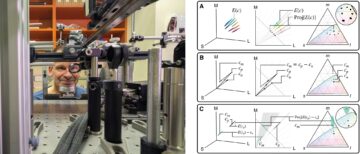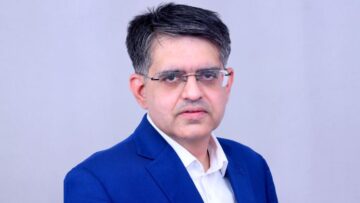Whether in man-made fabric (MMF), machine embroidery, digital printing or circular knitting, Surat has proven history of successfully initiating and excelling in different segments of the textile industry. And moving further, this city of entrepreneurs is geared up to tap the huge business opportunities of technical textiles. There are a few significant reasons why Surat is now focusing more on technical textiles. One of them is from the Government side as MoT is now fully dedicated to technical textiles. For example, MoT’s National Technical Textile Mission with total outlay of Rs.1,480 crore and PLI Scheme, with focus on promotion of 40 MMF apparel and 10 technical textiles lines to create 60-70 global champions, has financial outlay of Rs. 10,683 crore over a period of 5 years.
Industry players of this segment are now confident that they will get Government support. And this product segment is comparatively easy for Surat as the city has an edge of already available basic infrastructure and resources.
Being a leading MMF hub and having strength in producing a variety of products, Surat has the basic infrastructure required for the technical textiles industry. Ashish Gujarati, VP, Southern Gujarat Chamber of Commerce and Industry (SGCCI) and a leading textile player of the Surat says, “Around 70 per cent of products in technical textiles use MMF which is the core strength of Surat. Secondly, we do have technical skills and required machinery for such products is already available and knowhow is also there.”
He further adds that the push is now to do value addition in the available fabric as Government schemes are like a kick-start for entrepreneurs. Currently along with speciality fabrics like for rucksack, tents, roof awnings, pond liners, filtration fabric, reusable PPE fabrics, many companies in and around Surat are manufacturing products like wading moulded automotive, luggage, sanitary napkins, underpads, wipes and soft cast padding, etc.
Ashish feels that the industry in Surat is decentralised, so it is also cost-competitive as well as has high efficiency. He says, “Be it coating or lamination on the fabric or any other development, there are dedicated and specialised firms which enhance the scope for these compared to anybody else.”
The entrepreneurs of the city are always keen to explore new areas of growth and they are ready to diversify compared to others. And many of them have enough resources (funds) with them too. These aspects motivate them to add new product offerings in their product basket and to focus more towards segments like technical textiles which is more or less not explored by textile companies as the latter are still more inclined towards their traditional business.
Sahil Saraf, VP-Marketing, Nobletex (a group company of Pratibha Group) believes that there is an ecosystem in Surat that supports technical textile industry be it specifically required infrastructure, supportive policies of State Government, skilled labour.
Nobletex is a leading manufacturer of luggage fabric which manufactures mainly on water-jet looms and Surat has a good number of such looms. The company, catering to domestic as well as an export market, is expecting good growth in the long term.
Support structure
Specific to technical textiles, Surat has required support structure also and that too in technical as well as marketing front. The prestigious body of Surat, SGCCI recently has submitted the expression of interest (EOI) for setting up of the Export Promotion Council (EPC) for technical textiles. The organisation has enough resources to work effectively for the technical textile segment.
To make the firms more organised, attract new players in this segment, increase the know-how and to widen market reach, SGCCI is geared up and is in the process to organise various seminars and events dedicated to technical textiles.
Associated with the SGCCI’s technical textile committee and Director of Parul Silk Mills & Artline, Amish Shah informs, “We are in the process to get the support of various organisations like DRDO etc., which can further improve our offerings. Surat’s target is to offer more such products that are being imported from China.”
Amish’s company is into the production of filter fabric and expects good growth in the next few years.
Surat also has The Man-Made Textile Research Association (MANTRA) which is the designated centre of excellence in technical textiles by the State Government. The same is also marked as a centre of excellence in Agrotech by the Central Government in the sectors namely coating and lamination, non-woven and converter technology.
An important point here to underline is that many SMEs are anyhow involved in the extensive product range under the gamut of technical textiles. Majority of them are unorganised or semi-organised. SGCCI and MANTRA can be instrumental if these firms take the initiative to move further. If SGCCI’s EOI for EPC gets approved, it will further boost the SMEs as well as Surat in technical textiles. Currently around 10 per cent of the overall textile business of Surat is from technical textile segment which has scope to grow multi-fold in future.
Gujarat’s policies are quite supportive for the industry and technical textiles (excluding woven sacks in any form of packtech) is also a focus area in the state textile policy. It offers an interest subsidy of 6 per cent for technical textiles units. The state’s textile entrepreneurs also expect capital subsidy and cheap electricity from the State Government.
To support Surat as well as the overall technical textile industry, entrepreneurs feel that there is a need to streamline the HSN codes of this industry. By doing this, there will be more ease in business. It is pertinent to mention here that almost 2 years ago, Government issued 207 HSN codes for technical textiles.
Technical textiles is a sunrise sector for India and there can’t be a better time and opportunity for the textile sector to go ahead with this. And with all things in favour of Surat, one can hope that the city will touch awesome growth in this segment.







